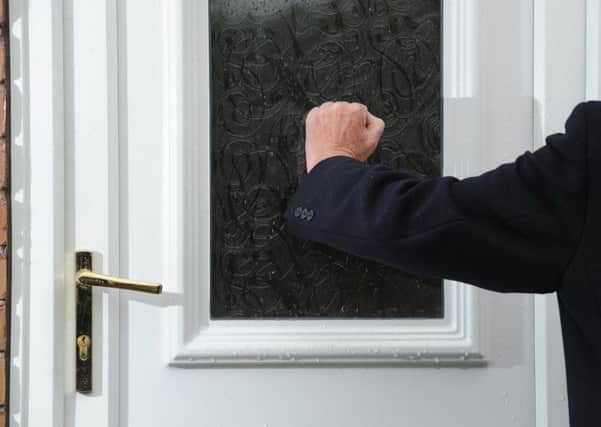Number of bailiff visits across district drops


Experts says the figure, revealed by the council in response to a Freedom of Information request, shows that more needs to be done to help those in financial difficulty at an earlier stage.
The research was conducted as part of National Debtline’s new Stop The Knock campaign and follows the release of official figures last month showing that Lancaster City Council ended the 2014/15 year with £7.9m in unpaid council tax arrears.
Advertisement
Hide AdAdvertisement
Hide AdIn total, councils in England and Wales instructed bailiffs 2.1m times for debts including council tax, parking, business rates and other arrears – an increase of 16 per cent on two years ago when the Money Advice Trust last researched the issue.
The findings rank Lancaster City Council at 227 out of 326 for local authority bailiff use in England and Wales, relative to size of authority.
The 2,172 bailiff referrals made by Lancaster City Council in 2014/15 represents a decrease of seven percent on two years ago, when the council reported 2,342 referrals in the 2012 calendar year.
Experts at National Debtline welcomed the fall, but said that the authority needs to do more to decrease its reliance on bailiffs as a means of collecting debts.
Advertisement
Hide AdAdvertisement
Hide AdThe charity is calling for bailiffs, now known legally as enforcement agents, to be used only as a last resort, with a greater focus on preventative work and early detection and intervention where residents and businesses fall behind.
Last year National Debtline provided free, independent advice to 124 residents in the Lancaster area, and says it wants to help many more who are struggling financially in the area.
The charity has written to the leader of the council with details of its latest research on bailiff use, and to call for improvements to debt collection practices to make sure people who are struggling get the free advice they need.
Joanna Elson OBE, chief executive of the Money Advice Trust, the charity that runs National Debtline said: “Local councils are facing significant funding pressures – and they of course have have a duty to collect what they are owed. In the case of council tax this is crucial in ensuring proper funding for the services that local people rely on.
Advertisement
Hide AdAdvertisement
Hide Ad“I would like to congratulate Lancaster City Council on making some progress in reducing its reliance on bailiffs for debt collection over the last two years. The council’s use of bailiffs, however, remains too high.
“On the front line of debt advice we know that sending the bailiffs in can deepen debt problems, rather than solve them – and it can also have a severe impact on the wellbeing of people who are often already in a vulnerable situation.
“Bailiff action is not only harmful to those in arrears – it is also a poor deal for the council taxpayer. Our research shows that the councils who use bailiffs the most are actually less effective at collecting council tax arrears.
“That’s why we are urging councillors to consider ways they can continue to improve the council’s debt collection practices, and ensure that bailiffs are only used as an absolute last resort.
Advertisement
Hide AdAdvertisement
Hide Ad“I would urge anyone in Lancaster who is struggling to cope with council tax arrears, or any other type of debt, to seek free advice from National Debtline as soon as possible.”
Anyone who is struggling to cope with council tax arrears or any other kind of debt can seek free advice from National Debtline at www.nationaldebtline.org or by phoning 0808 808 4000.